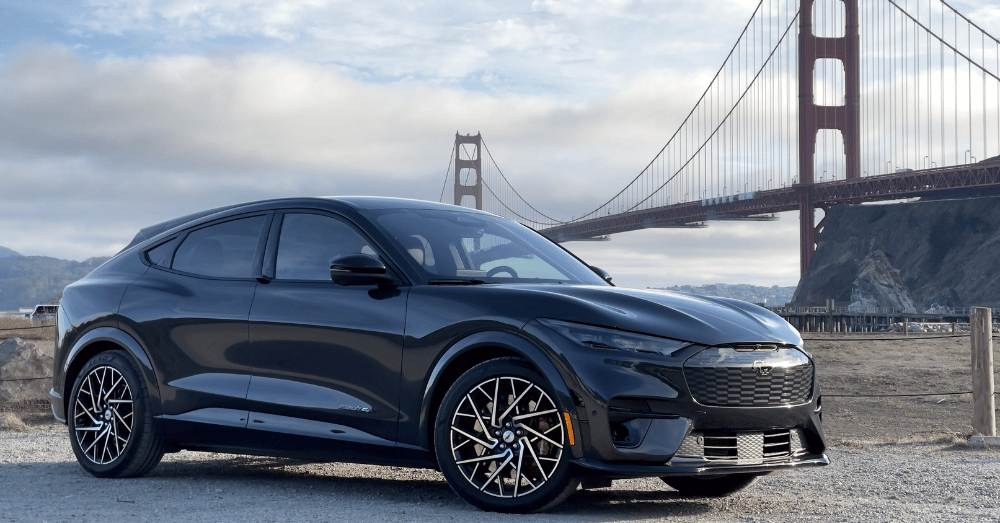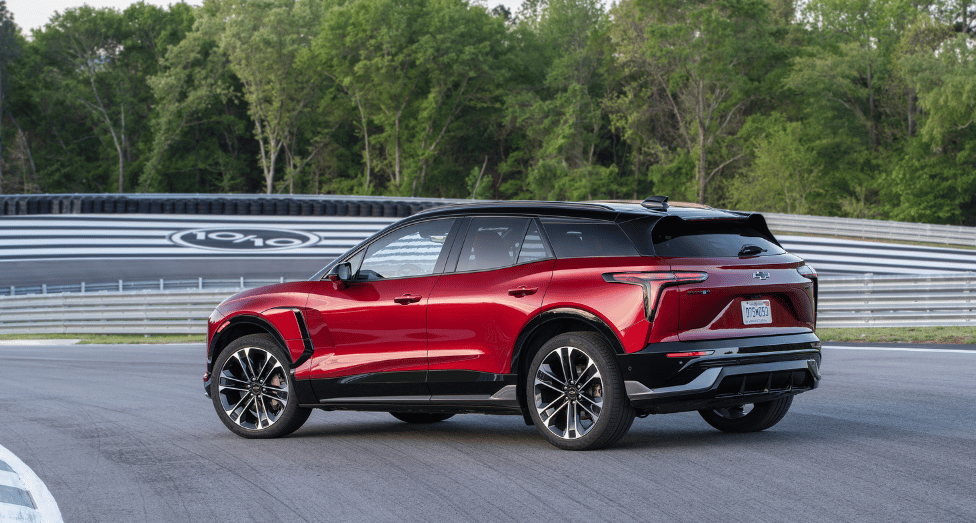When Your Family Hauler Can Smoke a Sports Car: These EV SUVs Are Ridiculously Fast
Pull up to a stoplight in your kid-friendly SUV and dust a Corvette. That’s the world we’re living in now. Electric power has turned practical family vehicles into acceleration monsters that embarrass dedicated sports cars. These four electric SUVs deliver both family-friendly features and screaming-fast acceleration. .
- Four electric SUVs that hit 60 mph faster than most supercars used to
- Range from 221 to 303 miles, with the Blazer EV SS leading the pack
- Prices span from $56,490 to $67,800, all packing serious punch
Here’s what’s wild about electric performance: instant torque. No waiting for turbos to spool or engines to rev. You mash the pedal and the world blurs. These four SUVs take that electric advantage and crank it way up.
Ford Mustang Mach-E GT: The Gateway Drug
At $56,490, the Mustang Mach-E GT is your entry point to electric speed. With 480 horsepower on tap, it hits 60 mph in under four seconds flat. Spring for the Performance upgrade and you get 700 pound-feet of torque that drops that time to 3.8 seconds. Ford fixed a problem from earlier models where full power would cut after 10 seconds, so now you get consistent acceleration.
The GT gives you 280 miles of range, which means you can actually use this thing for road trips. It comes with MagneRide suspension and Brembo brakes, so it handles curves as well as it handles straight lines. The Mustang badge might raise eyebrows on an SUV, but the performance backs it up.

Chevy Blazer EV SS: Comfortable Chaos
The Blazer EV SS costs $62,095 and brings 615 horses to the party. Chevy calls their full-power mode “Wide Open Watts” or WOW mode. Press that button and you’re hitting 60 mph in 3.3 seconds. What makes the Blazer stand out is how it balances that power with everyday comfort.
This is the range king of the group at 303 miles. You get a massive 102-kWh battery that charges at up to 190 kW. The Blazer rides smooth on normal roads but firms up when you want to have fun. It’s the biggest of these four, which means more passenger space and cargo room. You’re getting supercar acceleration in something that can actually haul your family and their stuff.
Kia EV6 GT: The Tech-Forward Rocket
At $65,295, the EV6 GT splits the difference between the Ford and Hyundai. It makes 641 horsepower and rockets to 60 mph in 3.2 seconds. The EV6’s 800-volt architecture means it charges stupid fast. You can go from 10 to 80 percent in under 18 minutes on a 350-kW charger.
Here’s where it gets weird: Kia added a “Virtual Gear Shift” mode that makes the EV feel like a traditional sports car. It pipes in fake engine sounds and simulates gear changes. You get paddle shifters that don’t actually shift anything. Some people love it. Others think it’s silly. Either way, the EV6 GT looks sharp and drives sharper.
The range takes a hit at 231 miles, but that’s the price you pay for this level of performance.
Hyundai IONIQ 5 N: The Track Monster
This is the one that made jaws drop. At $67,800, the IONIQ 5 N is the priciest here, but MotorTrend called it the quickest SUV they’ve ever tested. Zero to 60 mph in 2.8 seconds. That beats Lamborghinis, Porsches, and McLarens. Read that again.
Like its Kia cousin, the IONIQ 5 N makes 641 horsepower and adds fake engine sounds. But Hyundai went bonkers with track features. You get drift mode, 11 different torque distribution settings, battery preconditioning for track days, and brakes that can handle repeated hard stops. The suspension, borrowed from Genesis, keeps this SUV flat through corners.
Range sits at 221 miles, the lowest of the bunch. But if you want the most track-ready electric SUV money can buy, this is it.
The Weird World of Fake Sounds
Both the Kia and Hyundai add artificial engine noises. The IONIQ 5 N offers three sound profiles, including one that mimics a four-cylinder engine. The Blazer makes whooshing sounds in WOW mode. The Mustang Mach-E stays quiet.
Why add fake sounds to electric cars? Manufacturers claim it makes the driving experience more engaging. Critics say it’s trying too hard to be something EVs aren’t. You can turn them off if they bug you.
What This Means for Performance Cars
Five years ago, a sub-four-second 0-60 time meant you were driving something exotic. Now you can get it in a vehicle that holds five people and their luggage. The Blazer EV SS costs about the same as a well-equipped pickup truck but accelerates like a Ferrari from 20 years ago.
Electric performance has arrived. These SUVs are just the beginning. As battery technology improves and prices drop, this level of speed is becoming normal. Your neighbor’s family hauler might be faster than your buddy’s sports car. That’s the reality now.

